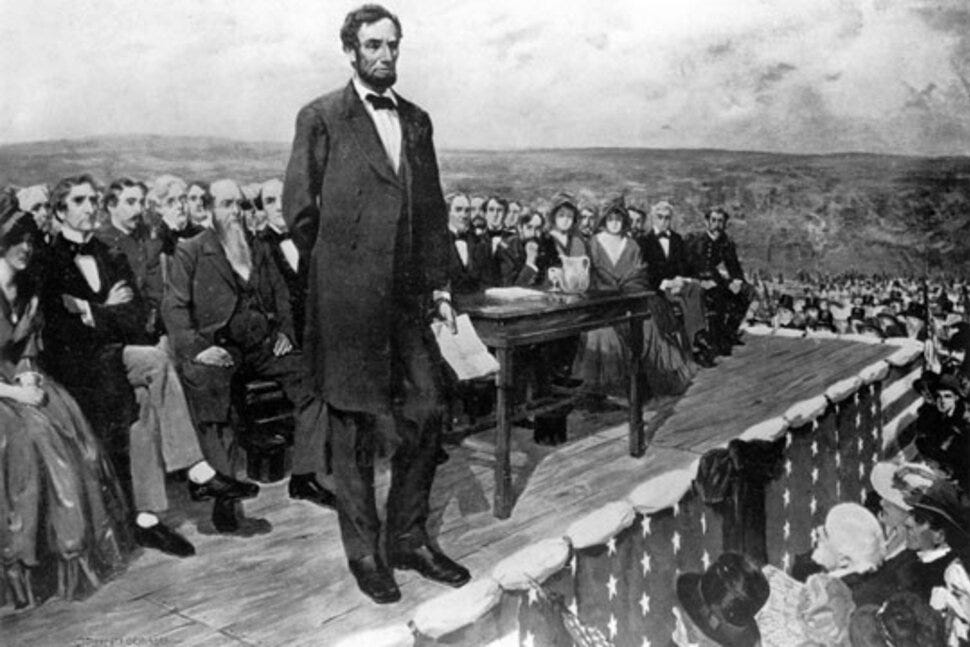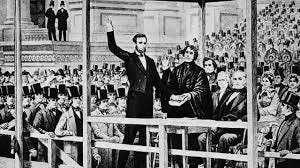Chapter 26: The Election of Lincoln in California
Mary Ellen Pleasant, JJ Moore, the Executive Committee
November 1860 — San Francisco, California
Mary Ellen Pleasant, Reverend JJ Moore, the Executive Committee
As November approached, no one I knew could think of anything but the election.
Voters were faced with four candidates for President:
Lincoln, representing the Republicans, opposed to expansion of slavery into the Western territories.
Douglas, backed by Northern Democrats—soft on slavery, and advocating for popular sovereignty: that settlers in the territories should decide for themselves about the “slave question.”
Breckenridge, representing Southern Democrats, supported by Senator Gwin and his large following. Virulently pro-slavery, claiming the issue was a matter of “states’ rights,” and insisting on strict national enforcement of the Fugitive Slave Act that kept so many of us, myself included, in constant terror of re-enslavement.
And John Bell, put forth by the hastily assembled Constitutional Union party, who believed the firestorm would die down if everyone just adhered to the Constitution. This idea had appeal to the upper South, where voters were both pro-slavery and pro-Union.
On November 20, San Francisco’s Black community gathered in the AME Zion Hall, awaiting the election returns.
When J.J. Moore read out the name of the new President, there was a strange silence in the hall.
Lincoln had got himself elected.
With not a single Southern vote.
Of course, his name didn’t appear on the ballot in ten of the fifteen slave states. That’s what kind of political power the plantation elite had.
J.J. continued the news:
“Abraham Lincoln is elected to be President of the United States for the term of four years. He has been chosen deliberately by the American people, after a fair canvass in a constitutional manner. California accepts him as her President, and has no complaint to make of the manner in which he has been chosen. Two-thirds of our citizens voted against him but as a body they submit without a murmur to the decision of the majority or plurality of the people of the Union.
No doubt there will be an excitement in the South. Fire-eaters will demand a dissolution. Conventions will be called, speeches will be made, editorial articles will be written declaring that a dissolution must and should take place, and advising how it is to be effected. These efforts will all end in smoke. It is an easy matter for furious young men to speak and write, but it is no small matter to break up the Union.”
As the crowd in the hall shifted and murmured, I thought of furious young Asbury Harpending. Multiply him by how many millions? And tell me they wouldn’t be trying to break not just the Union, but every damn thing in their path.
J.J. read on.
“It will be seen that Lincoln is not as black as he is painted. It will be discovered that the charges of abolitionism and incendiariea are untrue: and that the President elect is a moderate and reasonable man. We are confident in the opinion that the excitement in the South will cool down.”
I had myself a good laugh at that: “We are confident the South will cool down.”
Now, that’s a person who never lived in the South.
Before Lincoln was even sworn in, Southern states were already seceding.
As all the war talk heated up, pro-Southerners in San Francisco insisted the South was fighting for “a way of life.” Sure they were. Slavery was their way of life.
All those Articles of Secession spelled it right out for anyone who could read, or listen. Anyone who says it wasn’t about slavery hasn’t read those articles. 1
South Carolina: “An increasing hostility on the part of the non-slaveholding States to the institution of slaver, has led to a disregard of their obligations, and the laws of the General Government have ceased to effect the objects of the Constitution.”
Mississippi: “Our position is thoroughly identified with the institution of slavery-- the greatest material interest of the world. Its labor supplies the product which constitutes by far the largest and most important portions of commerce of the earth… a blow at slavery is a blow at commerce and civilization.”
Georgia: “For the last ten years we have had numerous and serious causes of complaint against our non-slave-holding confederate States with reference to the subject of African slavery. They have endeavored to weaken our security, to disturb our domestic peace and tranquility, and persistently refused to comply with their express constitutional obligations to us in reference to that property…While the subordination and the political and social inequality of the African race was fully conceded by all, it was plainly apparent that slavery would soon disappear from what are now the non-slave-holding States of the original thirteen colonies.”
Texas: “….was received as a commonwealth holding, maintaining and protecting the institution known as negro slavery-- the servitude of the African to the white race within her limits-- a relation that had existed from the first settlement of her wilderness by the white race, and which her people intended should exist in all future time. Her institutions and geographical position established the strongest ties between her and other slave-holding States of the confederacy.”
And on, and on. The slave states made no bones about it. They were seceding to protect their “right” to own slaves.
So it would be war.
It was always going to take one. And I wasn’t fooling myself that more than a fraction of the North would fight it to end slavery, though there were some.
But the way I saw it? Whatever it was that made the North fight, war was our only chance.
Read After the Gold Rush from the beginning:
https://www.battlefields.org/learn/primary-sources/declaration-causes-seceding-states




Typo: South Carolina: “An increasing hostility on the part of the non-slaveholding States to the institution of slaver,